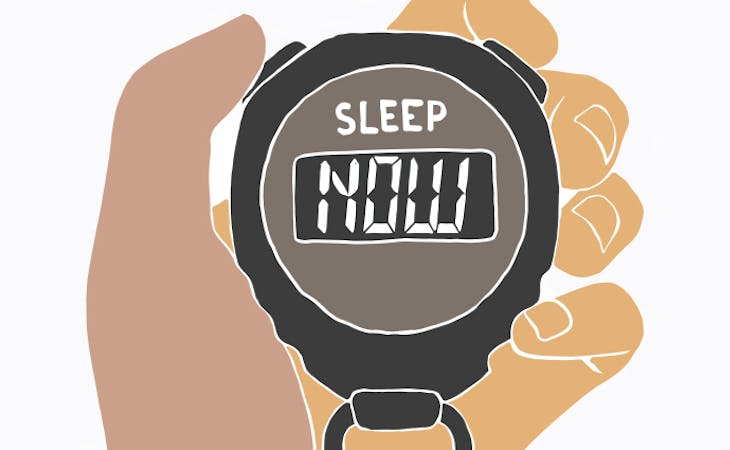As someone who writes about sleep for a living, I’d like to think I know quite a bit about the topic. The thing is, I’m not exactly the best sleeper. Although I don’t have a medical condition like insomnia or sleep apnea, I sometimes struggle to fall and stay asleep.
To get my sleep back on track, I called up Daniel Gartenberg, PhD, founder of SleepSpace. As a professional sleep consultant, he helps clients get better sleep by analyzing their habits and giving them personalized tips. (Note: I received Gartenberg’s services for free, but he charges $100 for your first session as a new client and $50 for follow-up appointments if needed.)
How a sleep coach solved my sleep problems
Here are my biggest sleep problems—and how I fixed them with Gartenberg’s help.
1. I use my phone in bed
More than 70% of people sleep with their phones in their hands or near their beds, and I’m one of them. When I get into bed, I’ll scroll through Instagram, Facebook, and Twitter. Before I know it, it’ll be 1 a.m. and I’m wide awake.
The fix: The first thing Gartenberg suggested was reducing the amount of blue light coming from my phone, since blue light suppresses melatonin, a hormone necessary for sleep. I activated Night Shift, a built-in feature of Apple phones, which automatically adjusts your display at whatever time you set (I chose 9 p.m.) so your screen gives off warmer, less blue light. Gartenberg is also a fan of f.lux, software you can download on your computer to adjust the light.
Next came cutting back on the amount of time I spend on my phone in bed. iPhones now allow you to set limits on how much time you use specific apps. I put a max of two hours a day for all of my social media apps. Once I hit the limit, I can no longer access those apps until the next day. Without being able to log onto Instagram just one more time before going to sleep, I’ve taken up other, more relaxing pre-bedtime activities, like reading. (Here’s how to ban your phone from your bedroom.)
2. I stay up too late on the weekends
It happens every weekend: On Fridays and Saturdays, I stay up until 2 or 3 a.m. and sleep in until 11 a.m. Some weekends I stay out late with friends, some weekends I binge-watch shows on Netflix at home. Regardless of my plans, come Sunday night I have serious difficulty falling asleep and feel exhausted Monday morning.
The fix: I followed Gartenberg’s advice to stick to a more consistent sleep schedule. I still go to bed later on Fridays than I normally would during the week, but I set an alarm for Saturday morning at 9 a.m. and force myself to go to the gym. On Saturdays, I go to bed around midnight and set my alarm for 8 a.m. Getting up early on Sundays gives me ample time to meal prep for the week, do laundry, and clean my apartment—and it also means I am tired much earlier so I go to bed at a reasonable time and don’t feel like a zombie on Monday. (Read our Equinox sleep coaching review.)
3. I sleep hot
I regularly wake up in the middle of the night drenched in sweat, and it’s hard to fall back asleep. I would be totally happy to ditch my comforter altogether and just rely on a top sheet, but my boyfriend doesn’t get that hot overnight.
The fix: Gartenberg explained how temperature affects sleep—the ideal room temperature is between 60° and 67°—and advised me to take steps to cool down my bedroom. In the winter, this meant keeping the windows open and turning on a fan because I don’t have control over the heat in my apartment. It will be easier in the summer when I can keep my air conditioner running through the night. (Here are more ways to cool down your bedroom.) I also got separate blankets—a heavier one for my boyfriend and a lighter one for me.
The bottom line: The minor changes Gartenberg suggested actually had a big impact. I’m happy to report I’m sleeping better than I used to—even if I still sometimes mindlessly scroll through my phone in bed.
For more advice from a sleep expert, see what Saatva sleep consultant Terry Cralle says are the right foods to eat for better sleep.




